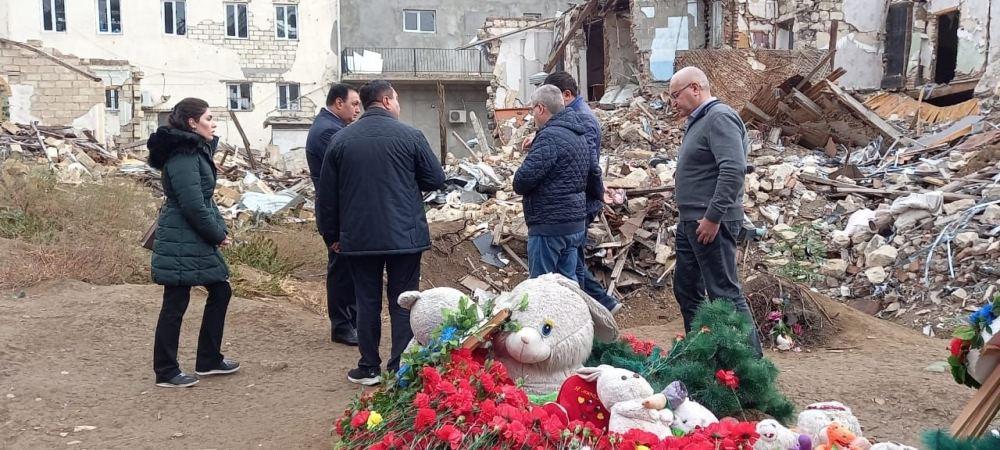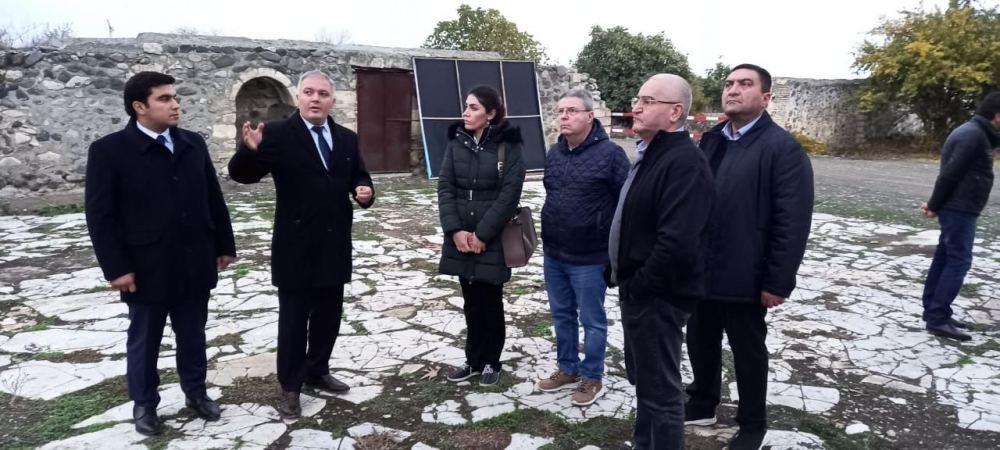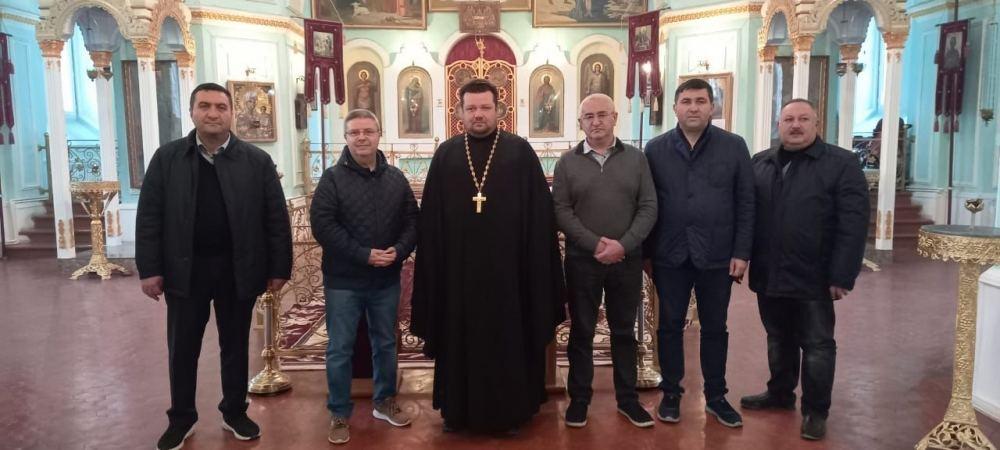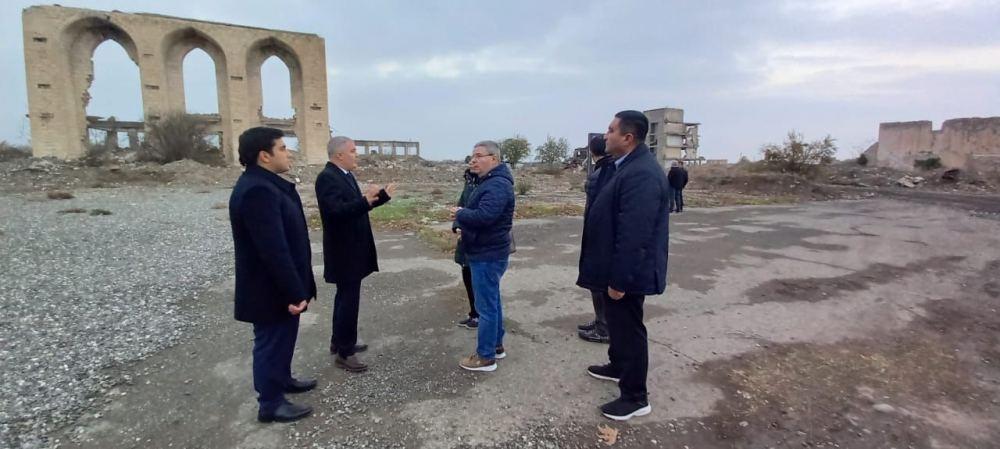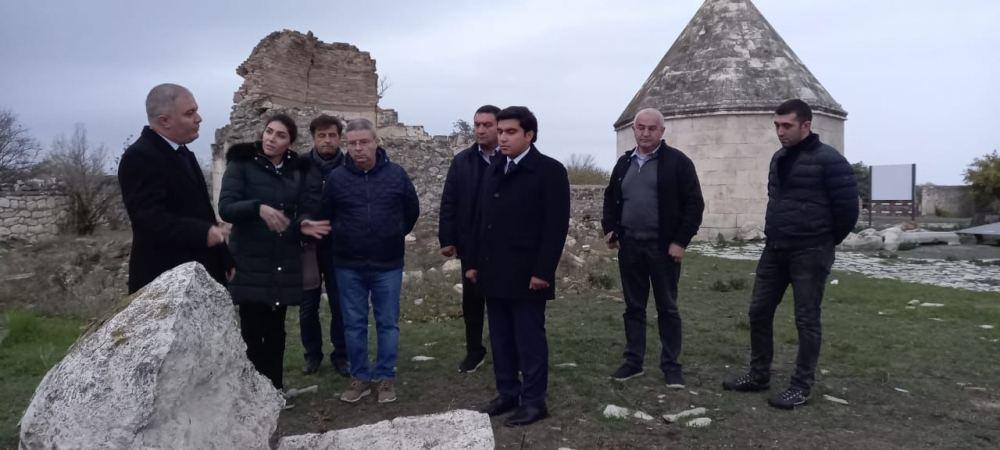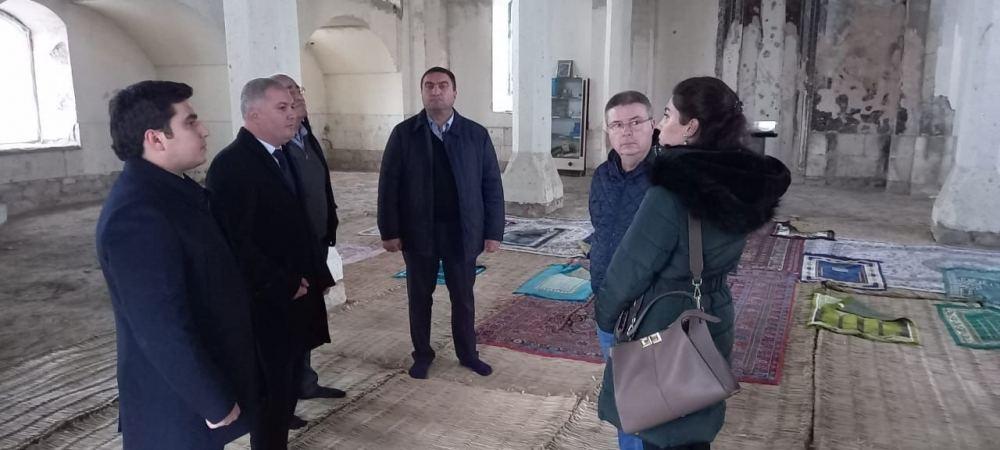Brazilian senator visits Ganja, liberated Aghdam [PHOTO]
![Brazilian senator visits Ganja, liberated Aghdam [PHOTO]](https://www.azernews.az/media/2021/11/01/an1.jpg)
By Vugar Khalilov
Head of the Brazilian-Azerbaijani Friendship Group on Interparliamentary Cooperation of the Brazilian National Congress Antonio Anastasia has visited Azerbaijan's second-largest city Ganja and liberated Aghdam.
Firstly, Anastasia visited the Armenian-bombed areas during the 44-day war in Ganja. The guest witnessed the results of the war crimes committed against the civilian population in October 2020, the report added.
The head of the Azerbaijani-Brazilian working group on inter-parliamentary relations, Mushfig Mammadli, and MP from Ganja Mushfig Jafarov briefed Anastasia about Armenia's multiple missile attacks launched on Ganja on October 4, 5, 8, 11, and 17, 2020, which killed 26 civilians, including women and children and injured 175.
They added that massive damage was inflicted on civilian infrastructure, historical and cultural monuments.
Later on, the senator also visited the Orthodox, Albanian and Lutheran churches in Ganja.
During his visit to Aghdam, Anastasia was informed that the Armenians had plundered, destroyed, and burned houses, public buildings, schools, cultural centers, kindergartens, hospitals and industrial enterprises in the city over the 30-year occupation.
It was noted that historical and cultural monuments, cemeteries in the city were also subjected to Armenians' vandalism.
In Aghdam, the Brazilian senator visited the historical Imarat complex, the palace and cemetery of Panahali Khan, the Juma Mosque and familiarized himself with the ruins of administrative buildings and the Aghdam Drama Theater.
He was also briefed about the city’s new master plan and construction projects to be implemented there
Anastasia shared his impressions about the visit with the media outlets.
As a result of Armenia's military aggression, 100 Azerbaijani civilians were killed, including 12 children and 27 women. As many as 454 people were injured, including 35 children. Some 181 children lost one parent, five children lost both parents, one family died. In total, 12,292 residential and non-residential buildings and 288 vehicles were damaged.
Armenia committed war crimes against Azerbaijani civilians disrespecting international law and international humanitarian law since these regulations require distinguishing between combatants and civilians, civilian and military objectives during the hostilities.
A criminal case has been initiated into the death of every civilian in Azerbaijan caused by the Armenian terror, and appeals have been sent to international courts and organizations.
A Moscow-brokered ceasefire deal that Baku and Yerevan signed on November 10, 2020, brought an end to six weeks of fighting between Armenia and Azerbaijan. The Azerbaijani army declared a victory against the Armenian troops. The signed agreement obliged Armenia to withdraw its troops from the Azerbaijani lands that it has occupied since the early 1990s.
The peace agreement stipulated the return of Azerbaijan's Armenian-occupied Kalbajar, Aghdam and Lachin regions and urged Armenia to withdraw its troops from the Azerbaijani lands that it has occupied since the early 1990s. Before the signing of the deal, the Azerbaijani army had liberated around 300 villages, settlements, city centers, and historic Shusha city.
—
Follow us on Twitter @AzerNewsAz
Here we are to serve you with news right now. It does not cost much, but worth your attention.
Choose to support open, independent, quality journalism and subscribe on a monthly basis.
By subscribing to our online newspaper, you can have full digital access to all news, analysis, and much more.
You can also follow AzerNEWS on Twitter @AzerNewsAz or Facebook @AzerNewsNewspaper
Thank you!

